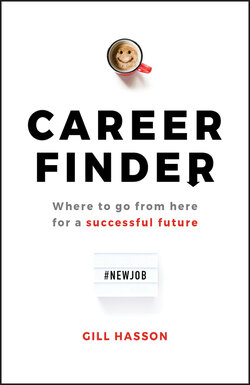Читать книгу Career Finder - Gill Hasson, Gill Hasson - Страница 6
1 The Changing Nature of Careers
ОглавлениеThe pen that writes your life story must be held in your own hand.
Irene C. Kassorla
What is a career? Like most people, you probably think of a career as the work a person does throughout their working life, in a specific profession or industry. We talk about a ‘career path’ and a ‘career ladder’; we see a career as something we make progress in, with opportunities for promotion, an increase in responsibilities and pay, and other benefits.
Although we're all familiar with the concept of a career, it is, in fact, a relatively recent concept.
In the past, most people simply did the work that was there; they did what their circumstances and environment presented them with. If, say, you lived in an agricultural community, your work was in agriculture, working on a farm or in associated work; as a blacksmith, for example. If you lived in a fishing community your work was in the fishing industry and if you lived in a mining community, you worked in or at the surface of the mines. In the towns and cities, you might have worked in a trade; you might, for example, have been a draper, or a goldsmith, a tailor, a cordwainer, a plasterer, or a bookbinder. Whether a person lived in a town or a city, as a rule, if their family did it, so did they.
In the middle of the nineteenth century, the advent of the Industrial Revolution brought people work in the factories and work with large employers, such as railway companies.
By the twentieth century, and throughout the following decades, access to an education widened the possibility for many individuals to enter a profession and build a career. Typically, people secured a job after leaving school, college, or university and they either stayed there or moved on to maybe one or two other employers during their working life. Employees were loyal towards the company or organization they worked for, and were confident of a high level of job security. Within the organization, there was a clear line of promotion; employees aimed to work their way up the career ladder in order to gain promotion and the associated benefits: increased responsibilities, pay, status, and a decent pension at the end.
The organization you worked for mapped out your career; they provided career opportunities and progress. Now, though, many of the organizations and companies that used to offer steady lifelong jobs are no longer presenting a linear career path and/or the security that previous generations experienced.
The three‐stage life of education, work and retirement is clearly not fit for purpose. That's a huge shift for the young as they consider lifetime learning and multiple career shifts. What worked for their grandparents' generation won't work for them. And it's not only the young who face this challenge – those in their forties and fifties have to plan for longer careers in a world where jobs will be changing with technology and their skills may no longer be relevant.
Lynda Gratton – professor of management practice and Andrew J Scott, professor of economics, both at London Business School.
Professors Gratton and Scott, authors of the book, The New Long Life: A Framework for Flourishing in a Changing World, suggest that ‘a core aspect of this new multi stage life is that it is “self‐authored”, in the sense that the dynamics and trajectory lie with you, rather than, as was the case in the past, with your employer. When we live longer, we inevitably have more transitions – from one job to another, but also from a job to a time to learn, or from a job to a time to care.’
Today, even if you do stay in one profession or industry or with one employer, you might travel a career path that changes direction. The UK's Civil Service, for example, on their career page https://civil-service-careers.gov.uk/ suggests to prospective employees that ‘whatever your passion, to specialize or try something new, there's a path for you.’
